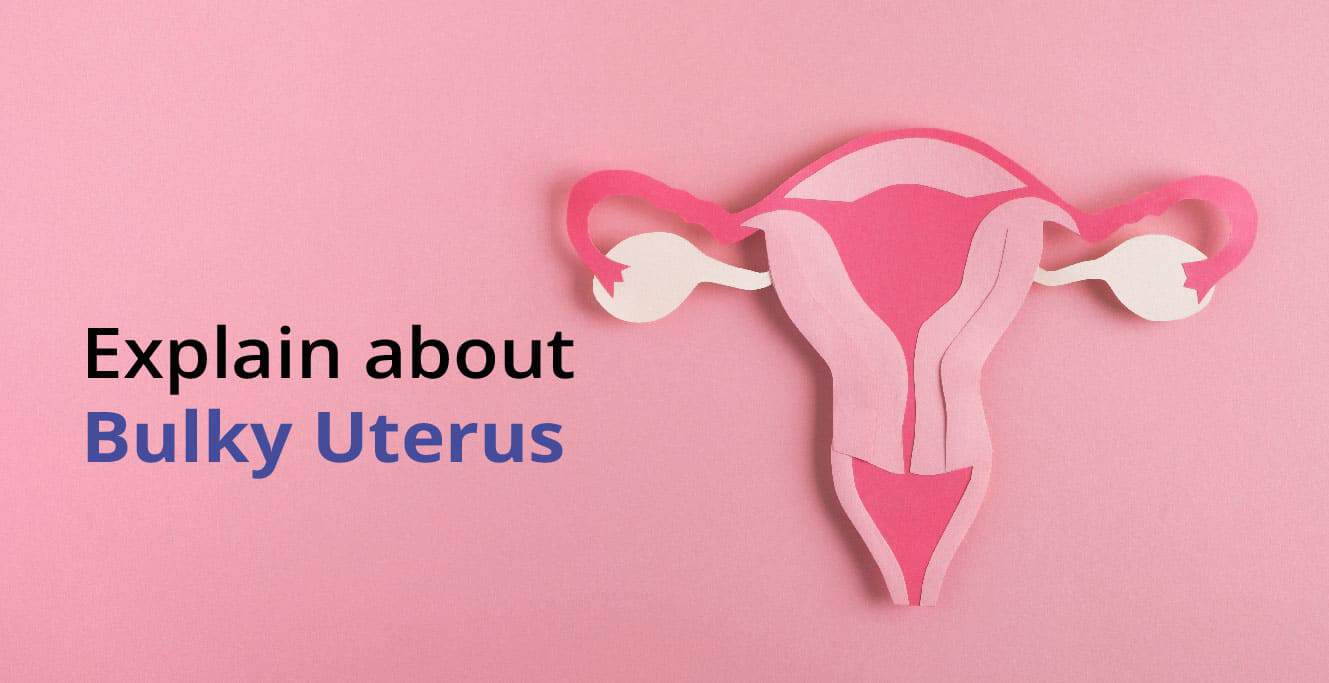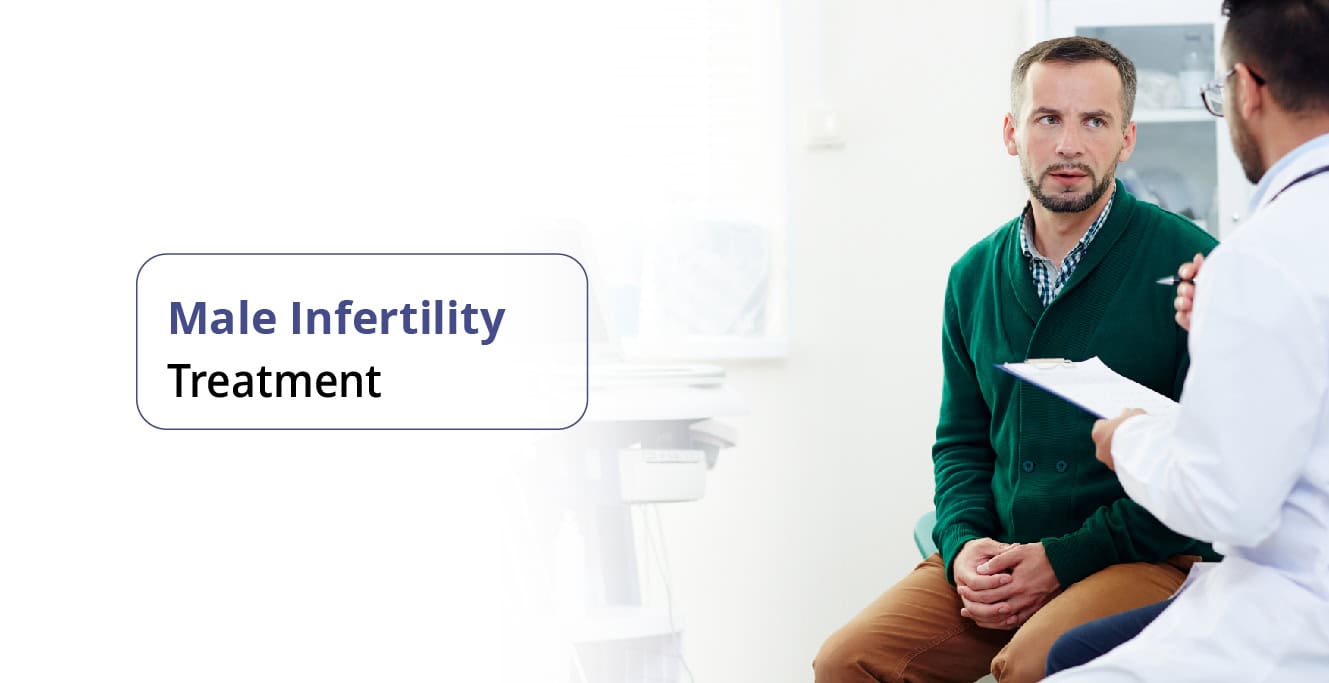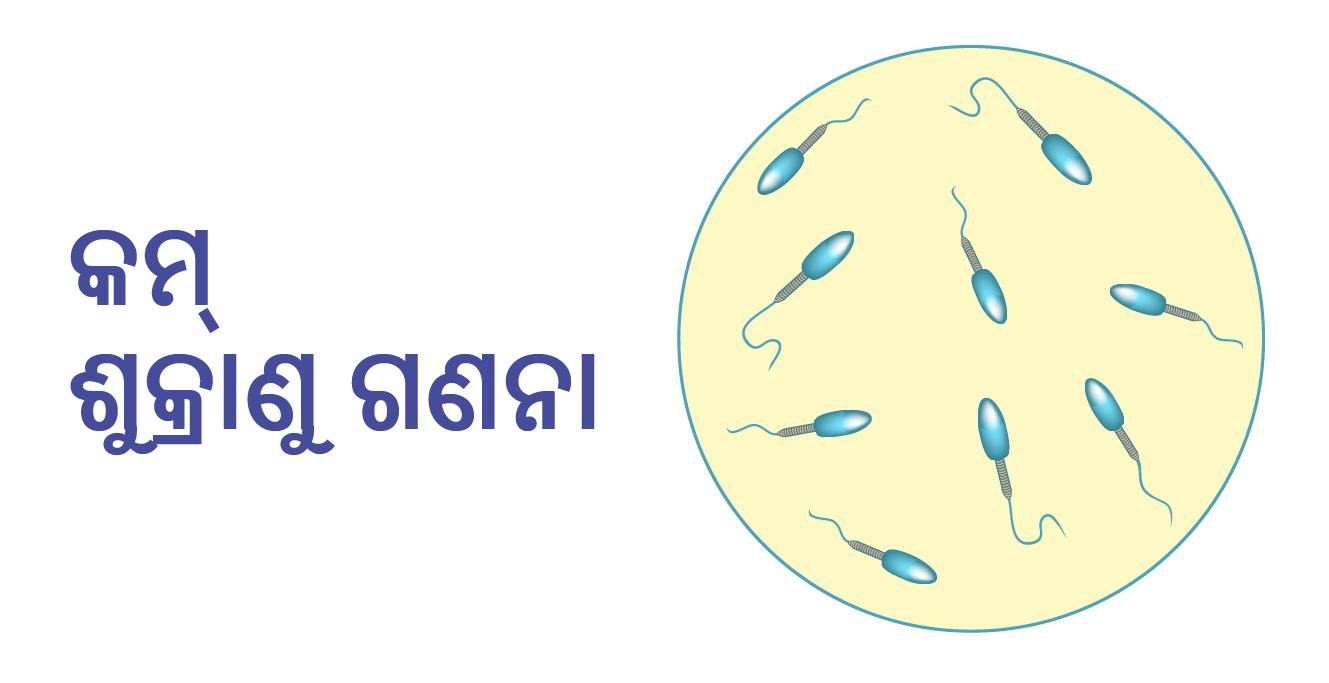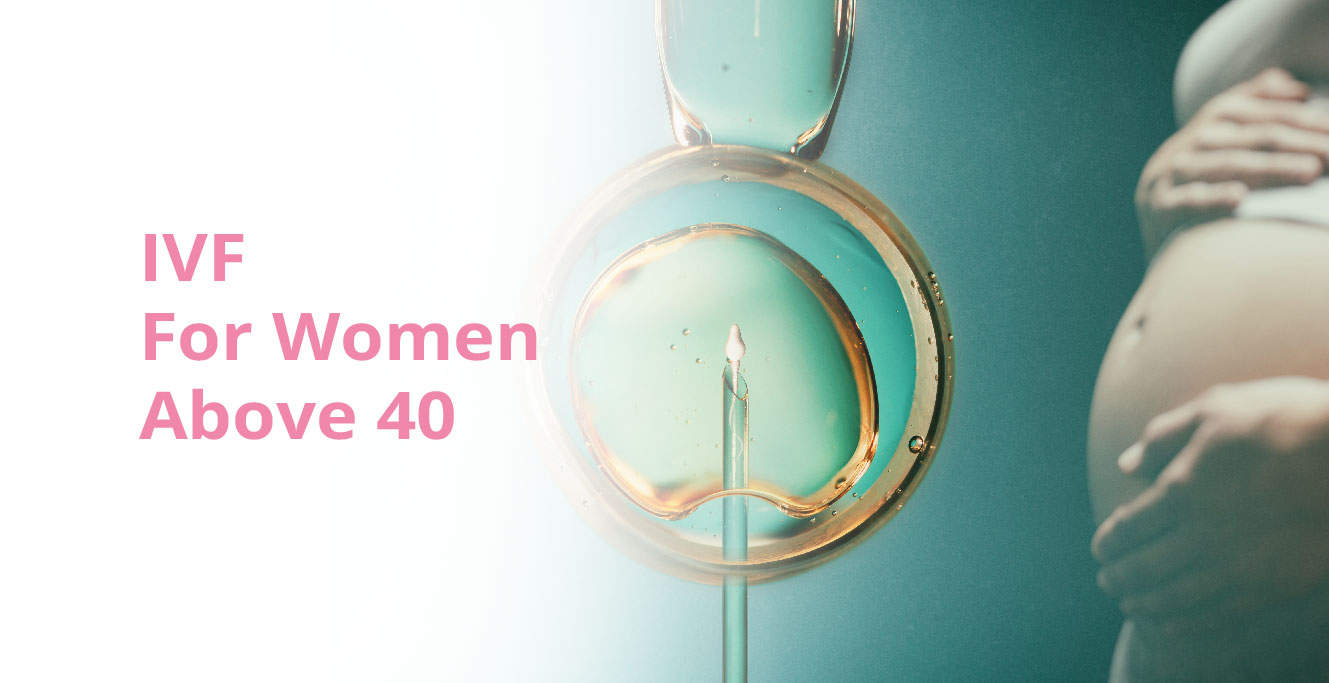Bulky Uterus: All You Need To Know
- Published on August 23, 2022

The uterus is a tiny reproductive organ that plays a key role in enabling females to menstruate, reproduce and nourish the fetus until the process of childbirth. It has an upside-down pear-like shape, and plays an important function in the reproductive system.
At times, it can swell up to two to three times the normal size of the uterus, resulting in a condition known as bulky uterus or adenomyosis.
Let’s learn get into more details about bulky uterus.
Table of Contents
What is a Bulky Uterus?
The regular dimensions of the uterus are between 3 to 4 inches by 2.5 inches, roughly the size of a small fist. When the size of the uterus increases, then it results in a condition known as bulky uterus.
It indicates a swelling of the uterine wall, which makes it looks larger than its usual size.
There are certain times when the size of the uterus will increase naturally. These include pregnancy, which is a normal occurrence. This is because the fetus inside the uterus needs to grow, so the uterus must go with it to protect and nourish it.
However, sometimes the uterus becomes larger without the occurrence of pregnancy. This can escalate into a serious condition and may impact fertility and the ability to get pregnant.
Typically, it results in creating a feeling of heaviness in the pelvic region and can result in bleeding.
Here’s a look at more comprehensive symptoms.
Bulky Uterus Symptoms
The bulky uterus manifests multiple symptoms, which can also overlap with other conditions associated with the female reproductive system.
Here are some bulky uterus symptoms that you should be alert to:
- Menstruation gets impacted; you might experience painful stomach cramps and heavy bleeding, which can lead to anaemia
- You may experience swelling and cramps in the legs and backaches
- A feeling of pressure in the areas around the uterus
- After reaching menopause, one can still experience bleeding
- A vaginal discharge
- Physical pain during sexual intercourse
- Frequent and quick urge to urinate
- Pain during sexual intercourse
- Weight gain and mass around the lower abdomen
- Acne and excessive hair growth
- Breasts may feel abnormally tender
- Constipation, and in some cases, an urge to urinate, frequently
- The skin can become pale
- Experiencing fatigue and weakness
Reach out to your medical care provider to get access to the right diagnosis and treatment if you experience these symptoms.
Bulky Uterus Causes
There are several triggers for a bulky uterus. Here is a list of occurrences leading to a bulky uterus.
- Surgery involving the uterus
During surgeries like cesarean section, an incision is made in the uterus. Another type of surgery involving the uterus is the removal of fibroids or tissue growths in the uterus.
Such surgeries can cause the uterus to swell, resulting in a bulky uterus.
- Inflammation of the endometrial lining
During and after childbirth, the uterine lining, also known as endometrium, may become inflamed, i.e. cells from the inner layer of the uterus may become embedded in the muscular layer of the uterus. They can lead to the entire uterus swelling.
- Developmental issues
When the female fetus is being formed in the womb, sometimes the endometrial tissue may get deposited within the uterine muscle. In later years, this can lead to adenomyosis or a bulky uterus.
There is also a speculated theory that stem cells from the bone marrow may invade the uterus and lead to a bulky uterus.
Diagnosis of the Bulky Uterus
Your medical caregiver will do a physical examination of the pelvic area to determine if there is swelling and if there is a need for further investigation.
If there is a swelling in a uterus, they will ask you to get an ultrasound done to rule out any potential tumours. If it is inconclusive, they may ask for Magnetic resonance imaging (MRI) of the uterus, which offers high-resolution images.
Bulky Uterus Treatment
There are several potential treatments. It is important for your medical care practitioner to also take into consideration your fertility goals and recommend treatment accordingly.
Your doctor may recommend anti-inflammatory medications to reduce the inflammation and physical, except if you are pregnant.
They may get you started on hormone medications such as birth control pills, which contain estrogen and progesterone hormones, or hormone patches.
In some cases, they might advise a hysterectomy if your safety is compromised. However, your fertility goals will also be a consideration in this case.
In some cases, the uterine lining will need to be removed through a procedure known as endometrial ablation.
This is a minimally invasive procedure used to destroy the endometrial lining as a way to reduce heavy bleeding, one of the bulky uterus symptoms.
Another approach is to cut off the blood supply to the uterus via uterine Artery Embolization, which helps to shrink the size of the uterus.
Takeaway
Your medical practitioner needs to recommend the right bulky uterus treatment so that neither your health nor fertility goals are compromised. Approaching a good fertility specialist can also help you address it carefully.
To seek the best treatment for infertility concerns, visit Birla Fertility and IVF, or book an appointment with Dr Prachi Benara.
FAQs :
- What is the normal size of the bulky uterus?
It is about 3 to 4 inches by 2.5 inches. Sometimes women can experience a bulky uterus, meaning enlargement to two to three times its normal size.
- How can I reduce my bulky uterus naturally?
Your doctor will prescribe some anti-inflammation medication to reduce it uninvasively.
- What happens when the uterus is bulky?
A bulky uterus grows to about two to three times the size of a normal uterus. Bulky uterus symptoms are evident easily such as heavy bleeding during periods, backaches, swelling and cramps in the legs, pain during sexual intercourse, and stomach cramping. It can also lead to acne, excessive hair growth, and fatigue. One may feel the urge to urinate excessively.
- Is a bulky uterus a serious problem?
It depends on the size of the swelling and the related symptoms. It can sometimes affect the menstrual cycle and lead to infertility issues. In such cases, it is advisable not to delay visiting a fertility specialist to get the right diagnosis and bulky uterus treatment.
Related Posts
Written by:
Dr. Prachi Benara
Consultant
Dr. Prachi Benara is a fertility specialist known for her expertise in advanced laparoscopic and hysteroscopic surgeries, addressing a wide range of conditions including endometriosis, recurrent miscarriage, menstrual disorders, and uterine anomalies like uterine septum. With a wealth of global experience in the field of fertility, she brings advanced expertise to her patients' care.
Over 14+ Years of Experience
Gurgaon – Sector 14, Haryana
Our Services
Fertility Treatments
Problems with fertility are both emotionally and medically challenging. At Birla Fertility & IVF, we focus on providing you with supportive, personalized care at every step of your journey towards becoming a parent.Male Infertility
Male factor infertility accounts for almost 40%-50% of all infertility cases. Decreased sperm function can be the result of genetic, lifestyle, medical or environmental factors. Fortunately, most causes of male factor infertility can be easily diagnosed and treated.We offer a comprehensive range of sperm retrieval procedures and treatments for couples with male factor infertility or sexual dysfunction.
Donor Services
We offer a comprehensive and supportive donor program to our patients who require donor sperm or donor eggs in their fertility treatments. We are partnered with reliable, government authorised banks to source quality assured donor samples which are carefully matched to you based on blood type and physical characteristics.Fertility Preservation
Whether you have made an active decision to delay parenthood or are about to undergo medical treatments that may affect your reproductive health, we can help you explore options to preserve your fertility for the future.Gynaecological Procedures
Some conditions that impact fertility in women such as blocked fallopian tubes, endometriosis, fibroids, and T-shaped uterus may be treatable with surgery. We offer a range of advanced laparoscopic and hysteroscopic procedures to diagnose and treat these issues.Genetics & Diagnostics
Complete range of basic and advanced fertility investigations to diagnose causes of male and female infertility, making way for personalized treatment plans.Fertility Calculators
Empower your journey to parenthood with our fertility calculators. Accurate, personalized guidance for your fertility goals.








































